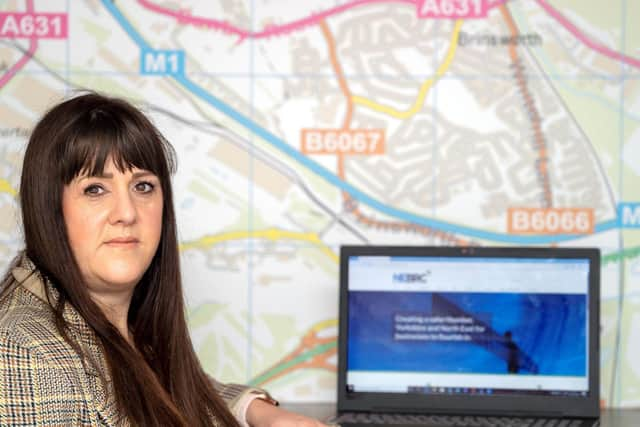How South Yorkshire residents can stay safe online as cybercriminals prey on Covid-19 fears
and live on Freeview channel 276
With schools closed and people confined to their homes due to the coronavirus pandemic, many of us are turning to online services to conduct work meetings and are using internet services more than ever.
But, multiple criminal groups have also ramped up their online activity and are capitalising on people’s genuine fears by using online scams to extract internet users' personal and financial information.


Advertisement
Hide AdAdvertisement
Hide AdThe National Fraud Intelligence Bureau (NFIB) reported a new trend in fraud related to Covid-19 last week, while Action Fraud revealed they had received 105 reports of the crime since the beginning of February equating to losses of nearly £970,000.
Now, the North East Business Reliance Centre (NEBRC), a partnership between South Yorkshire Police, businesses and the region’s universities to help fight cybercrime, has issued guidance on how we can avoid these types of scams as well as more general guidance on working from home.
South Yorkshire Police Supt. Rebecca Chapman, Cyber and Digital Forensics Project Lead, said: “Anybody that is working from home just needs to make sure they are working from a secure internet connection that is password protected.
“You are outside of the secure working environment so your defences might be down when you’re working from home as other people will have access to your network.


Advertisement
Hide AdAdvertisement
Hide Ad“You can imagine you’ve got about five or six people or even everybody that walks into your house that has been to your house before and is already connected to your network essentially can connect so potentially a hacker could get into that.
“Information given to us by the National Cyber Security Centre has revealed that Covid-19 related fraud reports increased by 400 per cent in March.”
Supt. Chapman says there are two main types of cyber hacks taking place, with the majority being related to online shopping scams where people have ordered protective face masks, hand sanitiser, and other products, which have never arrived.
Other scams being reported include ticket fraud, romance fraud, charity fraud, and people offering loans.
Advertisement
Hide AdAdvertisement
Hide AdThere have also been over 200 reports of phishing emails, where cybercriminals are purporting to be from the World Health Organisation (WHO) to trick people into clicking on malicious attachments which, if opened, can allow fraudsters to steal people’s personal information, passwords, and banking details.
Here are the NEBRC’s top cyber safety tips to help people protect themselves and their place of work online:
- Don’t click on the links or attachments in suspicious emails, and never respond to unsolicited messages and calls that ask for your personal or financial details.
- If you’re making a purchase from a company or person you don’t know and trust, carry out some research and ask a friend or family member for advice before completing the purchase. If you decide to go ahead, try to use a credit card, as most major credit card providers insure online purchases.
- Always install the latest software and app updates to protect your devices from the latest threats.
For more information and the latest cyber safety advice visit the NEBRC website.
